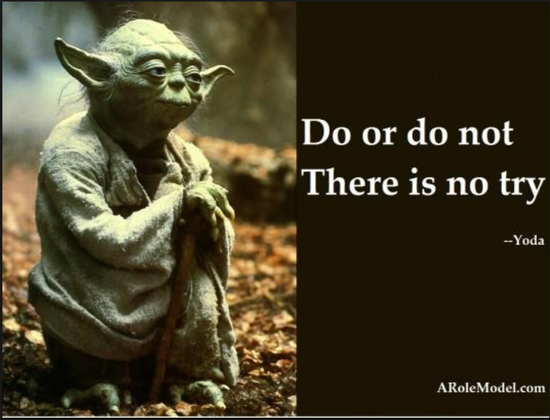|
When I arrived on Peaks Island, Maine last spring and went to Hannigan's grocery store [a glorified 7-11, I thought, in my Portland, Oregon foodie snobbery], I laughed aloud at the tagline on their truck: I snorted to myself, "I beg to differ."
But last week, when the wind chill of 17º below, I was setting out to go to my knitting meet-up and grocery shop in town. I walked half a block and decided to go to Hannigan's instead-- then back home where I had heat and a good book. When I saw that tagline on the truck outside the market, I said to myself . . . "Damn straight." Our perspective can change a situation in a freezing rain flash. And that perspective is everything. You can change a situation just by how you look at it, your interpretation or opinion. Alas, it's hard to look at things differently if we're just listening to our thoughts in our own head. I've noticed when clients reach out for help, they often wait too long before they do so. I ran that idea by a couple consulting clients this week, and they had seen the same thing in their industry. We tend to be so independent, thinking "I can solve this!' If people had reached out sooner, they would have created a new approach to a situation that they hadn't thought of before. They might not have become quite as frustrated for as long or the situation might not have become worse. Progress would be faster. If you find yourself trying to change a situation but getting frustrated instead, please schedule some time here. We often need an outside perspective to approach a situation in a new way, creating different results. Walking to the ferry this morning, the man who owns the nursery on the island said "Hi, Kerry." I replied, "Wow, you're good at names!" He said, "I try." Coach that I am I think..."He doesn't just try. He does it!" After a conversation with a client last week when she said she was "trying" to do something that she actually was doing, she sent this picture: We often create our experience with our language and what we say, but we don't notice what we're saying. We might say "It's going to be a rough week" and voila -- we create it! Our language is more powerful than we realize. It's worth being aware of what we are saying both to ourselves in our heads and aloud to others.
I saw a weather forecast for Maine that called for "thumping snow" last Sunday. I'm glad I was able to do more than try to shovel! We looked at integrity as the First Secret Ingredient for an Innovative Company Culture. If you're engaged in an active practice of looking to see how your actions line up with your commitments, you're on the right track! But how does that create an innovative culture? One book I read had some great examples: "When we say our people matter but we don’t actually care for them, it can shatter trust and create a culture of paranoia, cynicism, and self-interest." It's hard to be innovative when we're in that kind of culture! In one example from the book, Bob Chapman was walking by a locked inventory cage which he did daily so it was invisible to him. Because the company had a principle about trusting their employees, he thought "How is this locked inventory cage consistent with our value of trusting our employees?" [That is often the case with inconsistencies with our values. They're so accepted and normal to us; we're not looking at our environment with fresh eyes. But he saw it that day in a new light by looking from the company values]. He had the inventory cage unlocked on the spot. That's integrity and being in an inquiry about your values. It's continually asking yourself, "Where are we in integrity and where are we off track?' It is also a powerful communication to others in the organization demonstrating you're serious about your mission and values, and you'll make the hard decisions to get aligned even when it's inconvenient. We all know that actions speak louder than words. This is how you give your mission and values power to impact people's engagement and actions in your organization. If you'd like to learn to have your company mission live in your organization, please schedule some time here. Your mission and values are critical to your business success, talent retention, employee satisfaction and customer retention. You can leverage them to create breakthrough innovation in your company. At the bottom of an email or in a framed statement on a conference room wall, companies often have their mission statement and values. Such statements might read:
Integrity is the quality of being honest and having strong moral principles, or moral uprightness. It is a personal choice to hold one's self to consistent standards. [https://en.wikipedia.org/wiki/Integrity] I think the second part of this definition is the most critical: It is a personal choice to hold one's self to consistent standards. And taking it a step further -- Do our actions line up with our commitments or what we profess our commitments to be? Integrity is often related to as a moral principle i.e. you're good if you have integrity and bad if you don't. Or you're right if you do what you say you'll do, and wrong or bad if you don't. But human beings are imperfect by nature. No one has 100% integrity all the time. It's just not possible. So how do we have our professed mission and values mean anything or how do we have them be a living conversation in the organization? First of all, it is important that they are in writing. Once you've written them, this is where you want to look: How do our actions, practices and behaviors line up with these principles? This needs to be a daily practice and not an after-thought once you've finished your to-do list. Some suggestions how to approach this: Pick one principle a week with your staff and bring examples of where you fulfilled on that and where you fell short. [Remember that doesn't mean you're good if you fulfilled on it and a bad person if you didn't]. You just want examples. You want everyone looking for examples, consistencies and inconsistencies. This has the principle begin to be real and come alive in the organization. It starts to be a principle that shapes action vs. a static, pat phrase. But that only happens with a dialogue about it, an on-going dialogue. Tell one on yourself as a leader. Give an example of where your actions are inconsistent with your principles. That creates safety and vulnerability for everyone else to do the same. It demonstrates that you're human, too. It validates that we're all learning to be better people and employees together. If you'd like to learn how to better have your company mission live across all parts of your organization, please schedule some time here. Your mission, principles and values are critical to your business success, talent hiring and retention, employee satisfaction and customer fulfillment. If you can learn to leverage them and have them live in your organization, the results will surprise you [in a good way!] To your success and fulfillment, Kerry One theme I notice in my conversations with my clients is the abundance of negative self talk we can all engage in. As a solo business owner, I notice for myself that I may miss what I've accomplished and notice what I haven't. I'm on a current learning curve on multiple dimensions of my life: moving across the country, trying to figure out East Coast weather and Nor'Easters [as they say here: "If you don't like the weather, wait 5 minutes], and going all virtual in my client work to name a few. The virtual part is a big change for me that I hadn't anticipated how significant it would be. I like being around people!!!! So there's learning for me about getting out of my house, where to engage in a new community and seeing what gives me my people fix. Sometimes I blow it . . . "That was WAY too long in my house by myself!' Then I adjust and take some different actions. Did I mention living on an island without a car??? [and that it's a bit nippy outside?] Bringing compassion to ourselves as we learn really helps -- and most of us aren't very proficient at that. Establishing a practice to notice what we're accomplishing is important -- as is not judging yourself when something doesn't happen the way we thought it should. Talking with others helps, too -- a coach, a colleague, or a friend. Often business owners want to replicate themselves, grow their business and produce more results in the business through others vs. doing it all themselves. But they can be challenged in seeing and owning the gold inside of them. What they do and how they think is so natural and normal to them that they think everyone else thinks like they do, and are surprised when they don't. They don't know how to pass on that knowledge and awareness to others. But if you can't articulate it, your employees or staff won't read your mind and won't be able to support you in the way you're hoping. I thought this article had some great suggestions along these lines: https://www.nytimes.com/2018/12/04/smarter-living/how-to-accept-a-compliment.html If you'd like to better acknowledge and own your accomplishments and those of others' to grow your business, please schedule some time here. This time of year is a perfect time to look back over the year to mine for the gold. I'm in love with paint right now.
My goals aren't very lofty when it comes to painting this cottage right now: make it look better.
This isn't about the perfect color selection. And it's not about perfect edges or complete uniform coverage. Just let's get it passable and looking not gross. So I can have visitors. And my house guests aren't looking for the emergency exit. That's it. Someone else going to Ace Hardware might be an interior designer finding the perfect color for a client, or a home owner remodeling a dream kitchen, or a person wanting to spice up a room. We all have different goals and intentions when we are looking to buy something. Every customer, client, colleague or employee has different goal(s) or intention(s) when they talk with you. The questions is: Do you listen long enough to others to know what that intention or goal is? Do you treat people as individuals with a variety of aspirations? Everyone is motivated by different things. Listening for people's concerns, without judgement, can:
To your success, Kerry Do you have a picture or card that you've carried around with you for years because of the meaning it carries for you? You may have taped or pinned it up in different locations even though it's creased or stained with coffee. I got rid of a heckuva lot of possessions before moving across the United States, but I kept this: Some people call it vocation, others your life's purpose. Whatever it's called, a thread runs through your career -- in both the positive experiences and the challenging ones. Where are you called to contribute your best skills and talents? Here are some things I've noticed about exploring our calling:
If you'd like to talk with me about your calling and your fulfillment in your career, please schedule some time here. To your success, Kerry Yes, we all speak English -- but words mean different things to different people. I ran into this a couple times this week in my new home in Maine: 1. Mainers are saying it's "dry" here right now. If you read my musings on humidity last week, I don't know what they could possibly be talking about. There is moisture everywhere! 2. Also, I was getting a new phone last week and one of the employees came in talking about CBD coffee. I'm from Oregon and my immediate thought was CBD Coffee as in marijuana in coffee? I thought relax while you speed up? I made a quip about it and they cracked up. No, it's Coffee By Design, a local coffee shop. And we wonder why we have communication mishaps, clashing communication styles and misunderstandings! We all have different views of the world and we often don't understand the views of others. It sometimes takes work and a lot of communication. One place I see this is in partnerships. People often join a partnership for divergent reasons. They have different expectations and different priorities in the business. A lot of assumptions can be made and never talked through, and misalignment results. Frustration, finger pointing, blame and a fractured relationship can follow. You can't anticipate all that happens when you become partners with someone. How you deal with it and communicate when you hit the challenges is the key. Because of the patterns I've seen in partnerships I've worked with, I created a video on Top Three Tips to Have Partnerships Succeed. These tips are relevant in formal business partnerships as well as in other alliances you create in your business and your career. Here's the video: https://www.coachingcollaborative.com/partnerships.html If a partnership gets off track, the best strategy is to confront it head on and address the situation. The challenges don't get resolved by themselves -- and the longer you wait, the situation generally gets more challenging vs. less. If you or someone you know has challenges in their partnership, or is considering a partnership, let's talk to see how to address the situation. Schedule some time here: https://calendly.com/kerrywalls I can share some of the key questions that need to be considered to have a partnership go well, and make sure the words you use are understood by your partner and vice versa. CBD Coffee anyone? When you think of networking, what do you think of? For me, it used to be a feeling of dread and an evening of discomfort in a hotel ballroom full of strangers.
Fun, eh? When I wasn't having fun, I wasn't being effective, either. Who wants to buy some dread? Sign me up! Pick me! Pick me! In the last 3 years, I've experimented with a lot of different approaches and I've learned a few things doing so. I've learned that I have certain places I enjoy networking--i.e. small groups, one-on-one conversations, and public speaking. Places that seem to be torture, also, duh, don't produce results. I've learned to accept my style and be creative with how I network, rather than doing what I think I "should" be doing. I've learned to put myself in places where I'm doing the work I do and not trying to explain the work I do. I reached out to a previous client of mine, Kristen Gallagher of Edify [who is a rock star with on-boarding programs for rapidly growing tech companies] so we could connect during my upcoming trip to Portland, Oregon. She suggested I have some "office hours" and she sent a great invitation with a testimonial (Slow Bar on October 3, 4-6 PM!) I'm looking forward to the event and meeting people in a relaxed and personal setting, and I've already had a phone call and several confirmed attendees! It might end up being Speed Coaching at Slow Bar -- but it's a great idea and an experiment, and has me do what I do best: not just drinking an Old Fashioned, but meeting people, hearing about them and hearing what business concerns they have. Fun? Check. Effective for me? Check. Thank you, Kristen, for being such a great advocate for me. It's important to always network -- not just when you need something. It works way better to network to develop relationships that are mutually beneficial. It's important to give and receive in networking -- give a referral, a testimonial, send a relevant article to someone to let them know you're thinking about them, or provide value. Build relationship first, and don't be attached to a result. Find the style of networking that works for you--and engage it, be consistent, have fun and be creative. I thought this article on tips for better conversations in the NYT last week was relevant to networking [and all relationships]. Listen and be curious about others. Works every time! Come see me and Kristen at Slow Bar in Portland, Oregon, October 3 from 4-6 PM or schedule your own office hours with me here: https://calendly.com/kerrywalls. It's National New Windows Week on Peaks Island, Maine. This was my view: Beautiful, yes? That's Cushing Island over Whitehead Passage. Those cliffs are one of the highest point in Casco Bay.
The cracks in the windows and the broken seals are a bit distracting. I've lived here for a couple months so I've gotten used to it. I have a contractor here this week fixing this view. I walked in after he put in some new windows and I wasn't sure there was glass in the new windows. So clear!!!! Wow. That's the benefit of business planning. You have priorities. You have a focus. You define what your project is for the year -- are you focusing on growth? Are you stabilizing the business so you can grow without major breakdowns in your operations? Is the focus on training and developing your employees? Whatever you decide your focus is, you're less distracted by the things that happen that obstruct your view of what is important. Most people flip the calendar page into the next year and continue business as usual. If you want to produce even better results in 2019 than in 2018, having a clear plan and a focus is key. I'd love to support you to increase your focus on the priorities in your business: https://www.coachingcollaborative.com/business-planning-sessions.html I promise that working with me on your business plan will have you, at a minimum, earn 5x your investment in these sessions. I'd love to talk with you about making 2019 your best year ever! Let's have the view of your business be clear and unobstructed. |






 RSS Feed
RSS Feed